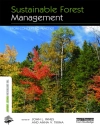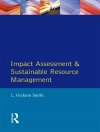This reader introduces students to examples of the most important research in the field of economic geography.
* Brings together the most important research contributions to economic geography.
* Editorial commentary makes the material accessible for students.
* The editors are highly respected in their field.
Tabella dei contenuti
Introduction: Reading Economic Geography.
Part I: Worlds of Economic Geography.
Editor’s Introduction: Paradigms Lost.
1. The Difference A Generation Makes. (David Harvey).
2. Industry And Space: A Sympathetic Critique Of Radical
Research. (R. A. Sayer).
3. An Institutionalist Perspective On Regional Economic
Development. (Ash Amin).
4. Refiguring The Economic In Economic Geography. (Nigel Thrift
and Kris Olds).
5. The Economy, Stupid! Industrial Policy Discourse And The Body
Economic. (J. K. Gibson-Graham).
Part II: Realms of Production.
Editor’s Introduction: Problematizing Production.
6. Is There A Service Economy? The Changing Capitalist Division
Of Labor. (R. Walker).
7. Uneven Development: Social Change And Spatial Divisions Of
Labour. (Doreen Massey).
8. Flexible Production Systems And Regional Development: The
Rise Of The New Industrial Spaces In North America And Western
Europe. (A. J. Scott).
9. Global-Local Tensions: Firms And States In The Global
Space-Economy. (Peter Dicken).
10. The Politics Of Relocation: Gender, Nationality, And Value
In A Mexican Maquiladora. (M. W. Wright).
Part III: Resource Worlds.
Editor’s Introduction: Producing Nature.
11. Nature, Economy And The Cultural Politics Of Theory: The
‘War Against The Seals’ In The Bering Sea, 1870-1911. (Noel
Castree).
12. Modernity And Hybridity: Nature, Regeneracionismo, And The
Production Of The Spanish Waterscape, 1890-1930. (Erik
Swyngedouw).
13. Oil As Money: The Devil’s Excrement And The Spectacle Of
Black Gold. (Michael J. Watts).
14. Converting The Wetlands, Engendering The Environment: The
Intersection Of Gender With Agrarian Change In The Gambia. (Judith
Carney).
15. Nourishing Networks: Alternative Geographies Of Food. (Sarah
Whatmore And Lorraine Thorne).
Part IV: Social Worlds.
Editor’s Introduction: Bringing In The Social.
16. Bringing The Qualitative State Into Economic Geography.
(Phillip O’Neill).
17. Territories, Flows And Hierarchies In The Global Economy.
(M. Storper).
18. Contesting Works Closures In Western Europe’s Old Industrial
Regions: Defending Place Or Betraying Class? (Ray Hudson And David
Sadler).
19. Class And Gender Relations In The Local Labor Market And The
Local State. (Ruth Fincher).
20. Thinking Through Work: Gender, Power And Space. (Linda
Mcdowell).
Part V: Spaces of Circulation.
Editor’s Introduction: From Distance To Connectivity.
21. The End Of Geography Or The Explosion Of Place?
Conceptualizing Space, Place And Information Technology. (Stephen
Graham).
22. Best Practice? Geography, Learning And The Institutional
Limits To Strong Convergence. (M. Gertler).
23. Blood, Thicker Than Water: Interpersonal Relations And
Taiwanese Investment In Southern China. (Y. Hsing).
24. From Registered Nurse To Registered Nanny: Discursive
Geographies Of Filipina Domestic Workers In Vancouver, B.C.
(Geraldine Pratt).
25. Discourse And Practice In Human Geography. (Erica
Schoenberger).
Consolidated Bibliography.
Index.
Circa l’autore
Trevor J. Barnes is Professor of Geography at the University
of British Columbia. His previous publications include A
Companion to Economic Geography (co-edited with Eric Sheppard,
Blackwell Publishing, 2001).
Jamie Peck is Professor of Geography and Sociology at the
University of Wisconsin-Madison. He is the author of
Work-place (Guilford, 1996) and Workfare States
(Guilford, 2001) and co-editor (with Henry Yeung) of Remaking
the Global Economy: economic-geographical perspectives (Sage,
2003)
Eric Sheppard is Professor of Geography at the University
of Minnesota. He is the author of The Capitalist Space
Economy and A World of Difference and the co-editor with
Trevor Barnes of A Companion to Economic Geography
(Blackwell Publishing, 2001) and with Robert Mc Master of Scale
and Geographic Inquiry (Blackwell Publishing, 2003).Adam
Tickell is Professor of Human Geography at the University of
Bristol. He is editor of Transactions of the Institute of
British Geographers and review editor of the Journal of
Economic Geography.












